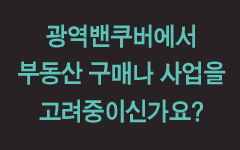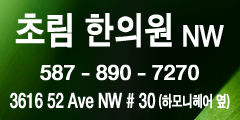주말
'미국이 자국민들에게 한국여행자제권고를 했다'는 엉터리 가짜뉴스를 한국주요언론이 보도하는 걸 보고 좀 놀랐어요.
다른 매체도 아닌 한겨레신문이 말이죠.
그런 적 없습니다.
오늘 캐나다가 한국에 대해 새 등급의 Travel Advisories 를 발표했기에 이에 대해 구체적인 내용을 알려드립니다.
또 이걸 두고 '캐나다가 한국인 입국금지했다'느니 '자국민들에게 한국방문자제를 요구했다'느니 한국이 국제왕따가 되었다느니 개호들갑을 떨면서 호랑이 풀 뜯어먹는 소리를 해대는 집단이 나타날 것 같아서요.
오늘 캐나다 외교부가 한국으로 가는 여행자들에게 'COVID-19 과 관련해 높은 단계의 주의'를 해 줄 것을 당부하는 내용의 새 Traval Advisory 를 올렸습니다.
이것은 팩트입니다.
내용은 별거 없습니다.
다음과 같은 권유사항이 전부입니다.
첫째 사람들이 많이 모인데 가지 마세요.
둘째 아픈사람, 특히 열이 나거나 기침을 하거나 호흡곤란증상이 있는 사람과 접촉하지 마세요
셋째, 손을 비누로 20 초 이상 자주 씻으세요.
넷째, 물과 비누가 없으면 세니타이저(alcohol based only)를 사용하세요.
다섯째, 기침 재채기 에티켓(옷으로 덮혀있는 팔꿈치로 막기)을 지키세요.
여섯째, 돌아오는 비행기 안에서 증상이 있으면 즉시 승무원에게 보고하세요.
일곱째, 캐나다 도착후 14 일 이내에 증상이 있으면...... 어쩌구저쩌구
늙었거나 앓고 있는 병 있으면 한국가기 전에 패밀리닥터 혹은 스페셜리스트와 상의해 보세요 (미국)
한국출발 캐나다 입국자에 대한 특별한 검역과 입국절차를 새로 실시한다는 이야기도 없습니다.
미국 국무부가 지난 주말 상향조정한 한국에 대한 Travel Advisories 역시 캐나다와 대동소이합니다.
COVID-19 와 관련해 미국과 캐나다가 다른 점은 일본과 이태리에 대해서 입니다.
미국 국무부는 일본과 이태리에 대해서도 한국과 같은 등급 (Level-2)의 Travel Advisories 를 적용한데 비해,
캐나다 외교부는 일본과 이태리에 대해서는 계속 평소와 같은 여행안전국 지위를 유지하고 있습니다.
한국 역시 어제까지만 해도 여행안전국이었습니다.
캐나다 외교부 Travel Advisories
https://travel.gc.ca/travelling/health-safety/travel-health-notices/212
Risk level(s)
South Korea - Exercise a high degree of caution
Exercise a high degree of caution in South Korea due to the spread of a novel coronavirus disease (COVID-19).
Coronavirus disease (COVID-19) in South Korea – Public Health Agency of Canada
Emergency services
Seoul - Embassy of Canada
Busan - Consulate of Canada
The decision to travel is your choice and you are responsible for your personal safety abroad. We take the safety and security of Canadians abroad very seriously and provide credible and timely information in our Travel Advice to enable you to make well-informed decisions regarding your travel abroad.
The content on this page is provided for information only. While we make every effort to give you correct information, it is provided on an "as is" basis without warranty of any kind, express or implied. The Government of Canada does not assume responsibility and will not be liable for any damages in connection to the information provided.
If you need consular assistance while abroad, we will make every effort to help you. However, there may be constraints that will limit the ability of the Government of Canada to provide services.
Learn more about consular services.
Recommendations for travellers
If you travel to South Korea, take precautions against respiratory and other illnesses, and seek medical attention if you become sick.
During your trip:
Avoid spending time in large crowds or crowded areas.
Avoid contact with sick people, especially if they have fever, cough, or difficulty breathing.
Be aware of the local situation and follow local public health advice.
Travellers are reminded to follow usual health precautions:
Wash your hands:
Wash your hands often with soap under warm running water for at least 20 seconds.
Use alcohol-based hand sanitizer only if soap and water are not available. It's a good idea to always keep some with you when you travel.
Practise proper cough and sneeze etiquette:
Cover your mouth and nose with your arm to reduce the spread of germs.
If you use a tissue, dispose of it as soon as possible and wash your hands afterwards.
Monitor your health:
If you become sick when you are travelling, avoid contact with others except to see a health care professional.
If you feel sick during your flight to Canada or upon arrival, inform the flight attendant or a Canadian border services officer.
Upon return to Canada:
If you develop a fever, cough or difficulty breathing within 14 days after the day you left South Korea:
call a health care professional or public health authority
describe your symptoms and travel history
avoid places where you cannot easily separate yourself from others
wash your hands often with soap and warm water for 20 seconds
cover your mouth and nose with your arm when coughing or sneezing
Government of Canada novel coronavirus information line: 1-833-784-4397
미국 국무부 Travel Advisories
https://travel.state.gov/content/travel/en/international-travel/International-Travel-Country-Information-Pages/SouthKorea.html#/
Exercise Increased Caution due to an outbreak of COVID-19 (also known as the disease caused by SARS-CoV-2).
A novel (new) coronavirus disease, recently designated as COVID-19, is causing an outbreak of respiratory illness. The first cases of COVID-19 were reported in China in December 2019. On January 30, 2020, the World Health Organization determined the rapidly spreading outbreak constitutes a Public Health Emergency of International Concern.
Many cases of COVID-19 have been associated with travel to or from mainland China or close contact with a travel-related case, but sustained community spread has been reported in South Korea. Sustained community spread means that people in South Korea have been infected with the virus, but how or where they became infected is not known, and the spread is ongoing. The CDC has issued a Level 2 Travel Health Notice.
Because older adults and those with chronic medical conditions may be at higher risk for severe disease, people in these groups should discuss travel with a healthcare provider and consider postponing nonessential travel.
Travelers should review and follow the Centers for Disease Control’s guidelines for the prevention of coronavirus if they decide to travel to South Korea. If suspected to have Coronavirus in South Korea, you may face travel delays, quarantine, and extremely expensive medical costs.
If you travel to South Korea, you should:
Avoid contact with sick people.
Discuss travel to South Korea with your healthcare provider. Older adults and travelers with underlying health issues may be at risk for more severe disease.
Avoid touching your eyes, nose, or mouth with unwashed hands
Clean your hands often by washing them with soap and water for at least 20 seconds or using an alcohol-based hand sanitizer that contains at 60%–95% alcohol. Soap and water should be used if hands are visibly dirty.
Enroll in the Smart Traveler Enrollment Program (STEP) to receive Alerts and make it easier to locate you in an emergency.
Follow the Department of State on Facebook and Twitter.
Review the Crime and Safety Report for South Korea.
Prepare a contingency plan for emergency situations. Review the Traveler’s Checklist
See https://www.cdc.gov/coronavirus/novel-coronavirus-2019.html
for additional guidance.









